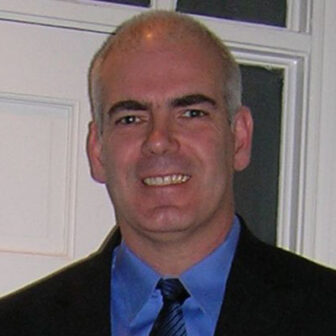Sir Richard Branson and Jeff Bezos may be starting a new era of innovation. Now that these two billionaires have successfully gone to space, many people, politicians included, took to social media to ask why they’re not spending the money to help poor and struggling people on our planet.
“It’s time to invest in working people here on Earth,” U.S. Sen. Bernie Sanders tweeted.
But there are scientists, like Dr. Alison Farrish, who are worried that the public’s views on the recent space journeys of billionaires will affect future opinions and budgets on space research.

Rice University Photo.
Dr. David Alexander
“My hope is that the public still sees value in scientific pursuits and the responsible exploration and study of space,” said Farrish, a native of Tolland, Connecticut who is a postdoctoral researcher in space physics at Rice University in Houston. “Personally, I hope the public keeps in mind that recent commercial space tourism for a privileged few is pretty separate from scientific missions to space.”
Other scientists in the field are taking a different perspective. Dr. David Alexander is a professor of physics and astronomy and director of the Rice University Space Institute. Alexander acknowledges the many problems that Earth faces and believes that they deserve a lot of attention. However, he said that doesn’t mean that we can’t start a new wave of invention and solve the problems here on Earth.
“We can multitask as a society, and, I think sometimes the arguments become too narrow,’’ he said. “You either spend money on this or you spend money on that. Things are not quite that simple.”
In 2015, Alexander delivered a TED talk about the future of space exploration. One of his main points was “humans inspire humans.” The recent trips to space by billionaires have the potential to do the same thing, he said.
“The technologies that get developed to solve these problems of going to Mars or going to the moon are technologies that ultimately are used here on the ground,” he said.

Rice University Photo.
Dr. Alison Farrish
These benefits happened during the space race of the 1960s. One example of this is fireproof materials that were invented after the Apollo 1 fire disaster. Vacuum-sealed food technology was also greatly improved as a result of the Apollo program.
More technology will be invented because of more travel to space, and more people will be inspired to invent even more, Alexander said.
“A lot of technology came out of the Apollo program, but the biggest advancement was the focus on science, technology, engineering and mathematics, Alexander said. “Because of this, many engineers, scientists and teachers were produced.”
Not only will there be more invention, there will also be a change in who can go to space. In the last astronaut program, more than 10,000 people applied, and eight people were chosen. Virgin Galactic’s and Blue Origin’s launch have changed this major part of the industry.
“Jeff Bezos is not an average person, but he’s not an astronaut,’’ Alexander said. “In Jeff Bezos and Richard Branson’s flights, regular people went up.”
Although the exact price of a ticket to space is unknown, the cost is believed to be around $250,000, according to CBS News.
Right now, it is expensive, and that is what some people have criticized. However, the hope is as this becomes more common, the price will be brought down.
“Now, will it come down to $200? Probably not,” Alexander said. “Will it come down to $10,000 or $20,000? Maybe.”
If tickets reach that range, there are people who spend that money on different adventures such as climbing Mount Everest or going deep-sea diving. Some people want the adventure and have the money.

Sidhi Dhanda is a student at Hopkinton High School, Hopkinton, Mass.